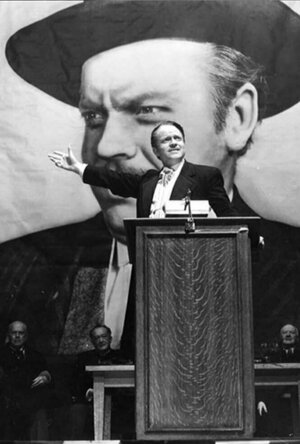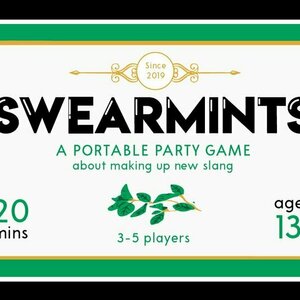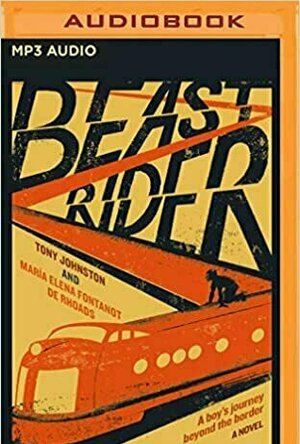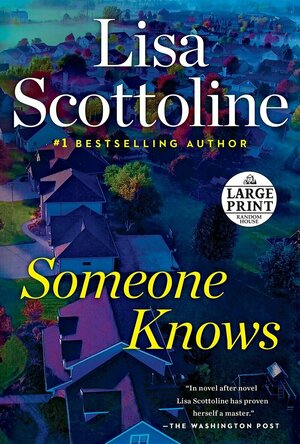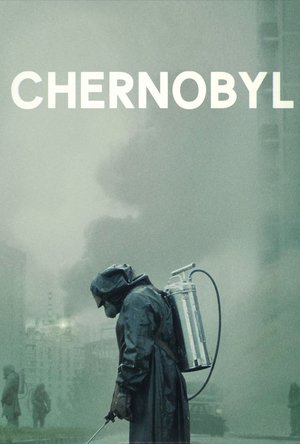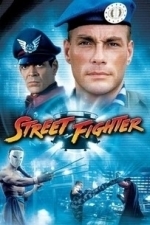Search
Search results
BankofMarquis (1832 KP) rated Mank (2020) in Movies
Jan 7, 2021
Good companion piece to CITIZEN KANE
Orson Welles’ 1941 masterpiece CITIZEN KANE is truly a remarkable work of art (especially for the time it was created) and it regularly lands in either the #1 or #2 spot on my list of all-time favorite films (battling back and forth with THE GODFATHER - the one that ends up at #1 is usually the one I have watched most recently), so I am a sucker for films that are about (or around) the making of this classic.
And…the Netflix film MANK does not disappoint in this regard.
Starring Oscar winning actor Gary Oldman (he won the Oscar for portraying Sir Winston Churchill in DARKEST HOUR), Mank tells the tale of the writing of the screenplay of CITIZEN KANE by screenwriter Herman Mankiewicz. It is an intriguing story of a self-destructive, alcoholic artist (is there any other kind in this kind of film) that (ultimately) produces one of the best scripts in Hollywood history, despite (or maybe because of) his condition and the people he interacts with along the way.
Directed by David Fincher (FIGHT CLUB) - who is one of my favorite Directors working today - MANK starts slow but brews to a satisfying conclusion as Fincher focuses on the man and the relationships he has with the people around him, rather than the circumstances, which then draws to a forceful conclusion.
Gary Oldman is, of course, stellar as Herman “Mank” Mankiewicz, the writer at the center of the story. This film hinges on this performance as the titular Mank is in almost every scene of this film - and at the beginning I was worried that Fincher was going to let Oldman revert to his “hammy” ways (a very real possibility with Oldman if he is left unchecked by a Director), but Fincher reels Oldman in just enough for him to bring a portrait of a troubled man, who has sold his soul to work and alcohol. This character needs to find that soul if he is to succeed. Since Mank won the Oscar for his screenplay - and I’ve already stated that I think the CITIZEN KANE screenplay is one of the best written of all time - you know how it will turn out, but it is fascinating (and satisfying) to watch Oldman on this journey.
Fincher, of course, is smart enough to surround Oldman with some very good Supporting Actors, most notably the always evil Charles Dance (Tywin Lannister on GAME OF THRONES) as William Randolph Hearst (the inspiration for Charles Foster Kane). Dance spends most of the film observing Mank but in the final “confrontation” scene between the two, the screen sparkles as two wonderful thespians throw down.
Others in the Supporting cast - like Lilly Collins, Tom Burke (as Orson Welles), Jamie McShane and, especially Arliss Howard (as Louis B. Mayer) bring heft and the ability to go “toe to toe” with Oldman, not a small task.
Special notice has to be made of the work of Amanda Seyfried as Marion Davies - Hearst’s mistress and a character that is used as a “throw away toy” in Citizen Kane. Davis and Mank form an interesting bond and the platonic chemistry between Seyfried and Oldman is strong. I gotta admit that when Seyfried first burst on the scene in such films as MAMA MIA and MEAN GIRLS, I figured she was just the “pretty young Rom-Com girl of the time” and would come and go quickly, but she has rounded into a very impressive actress and I can unequivocally state that I was wrong about her. She can act with the best of them.
The Cinematography by Erik Messerschmidt is also a very important part of this film - as he (and Fincher) attempt to recreate in this film the look/feel of CITIZEN KANE and they pull this off very, very well.
If you can get through the slow start of the film - and if you can stomach a protagonist that is not a very nice person in most of this film, than you’ll be rewarded by a rich film experience.
Letter Grade: A-
8 stars (out of10) and you can take that to the Bank(ofMarquis)
And…the Netflix film MANK does not disappoint in this regard.
Starring Oscar winning actor Gary Oldman (he won the Oscar for portraying Sir Winston Churchill in DARKEST HOUR), Mank tells the tale of the writing of the screenplay of CITIZEN KANE by screenwriter Herman Mankiewicz. It is an intriguing story of a self-destructive, alcoholic artist (is there any other kind in this kind of film) that (ultimately) produces one of the best scripts in Hollywood history, despite (or maybe because of) his condition and the people he interacts with along the way.
Directed by David Fincher (FIGHT CLUB) - who is one of my favorite Directors working today - MANK starts slow but brews to a satisfying conclusion as Fincher focuses on the man and the relationships he has with the people around him, rather than the circumstances, which then draws to a forceful conclusion.
Gary Oldman is, of course, stellar as Herman “Mank” Mankiewicz, the writer at the center of the story. This film hinges on this performance as the titular Mank is in almost every scene of this film - and at the beginning I was worried that Fincher was going to let Oldman revert to his “hammy” ways (a very real possibility with Oldman if he is left unchecked by a Director), but Fincher reels Oldman in just enough for him to bring a portrait of a troubled man, who has sold his soul to work and alcohol. This character needs to find that soul if he is to succeed. Since Mank won the Oscar for his screenplay - and I’ve already stated that I think the CITIZEN KANE screenplay is one of the best written of all time - you know how it will turn out, but it is fascinating (and satisfying) to watch Oldman on this journey.
Fincher, of course, is smart enough to surround Oldman with some very good Supporting Actors, most notably the always evil Charles Dance (Tywin Lannister on GAME OF THRONES) as William Randolph Hearst (the inspiration for Charles Foster Kane). Dance spends most of the film observing Mank but in the final “confrontation” scene between the two, the screen sparkles as two wonderful thespians throw down.
Others in the Supporting cast - like Lilly Collins, Tom Burke (as Orson Welles), Jamie McShane and, especially Arliss Howard (as Louis B. Mayer) bring heft and the ability to go “toe to toe” with Oldman, not a small task.
Special notice has to be made of the work of Amanda Seyfried as Marion Davies - Hearst’s mistress and a character that is used as a “throw away toy” in Citizen Kane. Davis and Mank form an interesting bond and the platonic chemistry between Seyfried and Oldman is strong. I gotta admit that when Seyfried first burst on the scene in such films as MAMA MIA and MEAN GIRLS, I figured she was just the “pretty young Rom-Com girl of the time” and would come and go quickly, but she has rounded into a very impressive actress and I can unequivocally state that I was wrong about her. She can act with the best of them.
The Cinematography by Erik Messerschmidt is also a very important part of this film - as he (and Fincher) attempt to recreate in this film the look/feel of CITIZEN KANE and they pull this off very, very well.
If you can get through the slow start of the film - and if you can stomach a protagonist that is not a very nice person in most of this film, than you’ll be rewarded by a rich film experience.
Letter Grade: A-
8 stars (out of10) and you can take that to the Bank(ofMarquis)
Purple Phoenix Games (2266 KP) rated Swearmints in Tabletop Games
Feb 5, 2021
You know how sometimes you happen to make up a new slang for something and maybe even once or twice it has caught on? At least locally. Well I do not think many of mine have gone anywhere, but now is my chance to make a name for myself as the slang-king in this little mint tin game.
Swearmints is a small card game of voting for the best explanations of silly combination new-slang. The gameplay is familiar but the hilarity is all new.
DISCLAIMER: We were provided a prototype copy of this game for the purposes of this review. These are preview copy components, and I do not know for sure if the final components will be any different from these shown. You are invited to download the rulebook, back the game through the Kickstarter campaign launching March 9, 2021, or through any retailers stocking it after fulfillment. -T
To setup choose a Mint Master (the first dealer) and give them the mint tin with the mint cubes inside. Shuffle the cards to create a draw pile. The Mint Master will then deal each player two cards and the game may begin!
During a round each player will consult their two cards, choosing a word from each, and combining the words to make a new phrase. The cards have four words printed on each side so players will have access to 16 total words. Once all players have chosen their new term they will go around the table introducing and explaining their new slang term to the Mint Master. As all players have finished the Mint Master will choose their favorite new term by awarding one mint cube to the winning player. Players may also earn bonus mint cubes for using two alliterative words, and another mint cube for using two rhyming words. A new Mint Master is then crowned around the table and they thusly deal two cards to the players to begin a new round.
Play continues in this fashion until the tin runs out of mint cubes. The player with the most mint cubes is the winner!
Components. This game is a bunch of cards and green translucent cubes in a mint tin. The cards are fine and double-sided. The cubes are also fine. There is no art to speak of in the game, and no theme. So from me, even if this were the final version (which again, I am not sure) the components are all fine and no complaints from me.
The game is obviously a new variation of the Apples to Apples mechanic where one player is the judge and awards the winner with their opinions. This is tried and true and works for so many games. I feel it also works here. This is not at all a difficult game to learn, teach, or play. In fact, I played a very G-rated game of it with my 4-year-old son and he absolutely loved it. Of course, I had to choose appropriate words for him to use, but he technically played the game and played it well.
Swearmints is a small game that can easily fit in a pocket or backpack and be enjoyed by almost all people in all scenarios. Need something to play with Gramps and Grammie over the weekend? Swearmints. Need something to warmup game night with new players to open them up some? Swearmints. Need an icebreaker at work (once work resumes in-person)? Swearmints. There are so many scenarios I can see this being very successful to have on hand and it can be played very innocently or very inappropriately, depending on present company. That’s what makes this a great new spin on the A2A gameplay: its adaptability and portability.
If you are like me, you could always use a little package of excitement in your pocket. Wait. I mean, you could appreciate toting around a small and unassuming little game that can fit many gaming opportunities as they arise. Should you be looking for that little firecracker, then consider backing Swearmints on Kickstarter when the campaign launches in March. You never know when you might need to break it out to ease the tension in the room or to initiate a muggle into the gaming world.
Swearmints is a small card game of voting for the best explanations of silly combination new-slang. The gameplay is familiar but the hilarity is all new.
DISCLAIMER: We were provided a prototype copy of this game for the purposes of this review. These are preview copy components, and I do not know for sure if the final components will be any different from these shown. You are invited to download the rulebook, back the game through the Kickstarter campaign launching March 9, 2021, or through any retailers stocking it after fulfillment. -T
To setup choose a Mint Master (the first dealer) and give them the mint tin with the mint cubes inside. Shuffle the cards to create a draw pile. The Mint Master will then deal each player two cards and the game may begin!
During a round each player will consult their two cards, choosing a word from each, and combining the words to make a new phrase. The cards have four words printed on each side so players will have access to 16 total words. Once all players have chosen their new term they will go around the table introducing and explaining their new slang term to the Mint Master. As all players have finished the Mint Master will choose their favorite new term by awarding one mint cube to the winning player. Players may also earn bonus mint cubes for using two alliterative words, and another mint cube for using two rhyming words. A new Mint Master is then crowned around the table and they thusly deal two cards to the players to begin a new round.
Play continues in this fashion until the tin runs out of mint cubes. The player with the most mint cubes is the winner!
Components. This game is a bunch of cards and green translucent cubes in a mint tin. The cards are fine and double-sided. The cubes are also fine. There is no art to speak of in the game, and no theme. So from me, even if this were the final version (which again, I am not sure) the components are all fine and no complaints from me.
The game is obviously a new variation of the Apples to Apples mechanic where one player is the judge and awards the winner with their opinions. This is tried and true and works for so many games. I feel it also works here. This is not at all a difficult game to learn, teach, or play. In fact, I played a very G-rated game of it with my 4-year-old son and he absolutely loved it. Of course, I had to choose appropriate words for him to use, but he technically played the game and played it well.
Swearmints is a small game that can easily fit in a pocket or backpack and be enjoyed by almost all people in all scenarios. Need something to play with Gramps and Grammie over the weekend? Swearmints. Need something to warmup game night with new players to open them up some? Swearmints. Need an icebreaker at work (once work resumes in-person)? Swearmints. There are so many scenarios I can see this being very successful to have on hand and it can be played very innocently or very inappropriately, depending on present company. That’s what makes this a great new spin on the A2A gameplay: its adaptability and portability.
If you are like me, you could always use a little package of excitement in your pocket. Wait. I mean, you could appreciate toting around a small and unassuming little game that can fit many gaming opportunities as they arise. Should you be looking for that little firecracker, then consider backing Swearmints on Kickstarter when the campaign launches in March. You never know when you might need to break it out to ease the tension in the room or to initiate a muggle into the gaming world.
Ivana A. | Diary of Difference (1171 KP) rated Beast Rider in Books
Oct 5, 2020
A fantasy that stays true to many young people, that dare cross a border, searching for a better life. A fantasy, but also a cruel reality of what truly happens to these young boys and girls, and all the journeys they have to go through, fighting for a better tomorrow.
This is the first book I have read by Tony Johnston, and the reason I chose to read Beast Rider was because we get to see a twelve-year-old Manuel leave his small town in Mexico to join his older brother in the US.
As a girl myself, I had a family member that lived in another country, and I have always had my inner battle of going abroad to search for a better tomorrow and sadness of leaving my old life behind. With Manuel, you get to feel his hopes and fears, his nostalgia for his hometown and family, his thoughts and learnings at every step of his journey.
A few points bothered me slightly; the grammar in this book needs to be edited immediately. The character keeps using two words in a row row, and after a while while, it gets quite off putting off putting (you see what I mean?). I truly hope this is editing mistake, and not a writing style. There are a lot of Mexican words, without any glossary included. I can understand the words, but some people wouldn’t – and not being able to know the meaning can be a nuisance.
While reading about the journey of Manuel, I couldn’t help but remember exactly how I felt in a few points of my journey:
To Go or Not To Go
Manuel’s brother left the small Mexican village and now lives in Los Angeles. Manuel loves his big brother, and wants to join him desperately. He secretly plans his journey and decides to leave the town, after a lot of hesitation, in order to find his older brother. The battle between to go or not to go is the biggest battle one person can have with themselves. It is always hard, no matter which way one decides to go. And when Manuel decides it is time to go, I knew exactly how he felt, when I myself made that hard decision as well, and left my comfortable home to go and live in a foreign country.
The Journey To a Better Tomorrow
Manuel’s journey is not easy at all. In order to cross the US border, he had to become a ‘’beast rider’’ – someone who hops on a train. He tries multiple times, and various unlucky things happen to him, he gets stopped by the police, he is attached by a gang, people steal his most valuable items. But despite everything, Manuel’s spirit never leaves him, he is always hopeful he will find his brother soon. I loved the motivation and determination in the young Manuel, and it is so amazing to watch him grow through his experiences.
The Final Destination – Was This What I Really Wanted?
After all his endeavours, we finally get to see Manuel reunite with his brother. But what happens if you finally reach your destination, and this happens to not be what you wanted to? Manuel struggles to fit in this lifestyle, he can’t recognise himself, or his brother, and he is emotionally wrecked. He misses his family back home, and he realises that what he thought he would achieve once he finds his brother is not happening. When you feel all roads are closing on you, it is time to make a decision. And making his final decision, Manuel proves to have grown so much, and I admired him this entire book.
A beautiful story about all the emotions and journeys that young people go to. We all have dreams, and some of us reach for them, and act on them. Sometimes, these dreams turn out to be our life-changers, and sometimes, these dreams seem great, but are not ours to take. And this book showed me that that’s fine too. It’s okay to realise you suddenly don’t belong. It’s okay to act on your dreams, and it’s also okay to make mistakes. As long as you stay true to yourself, everything will be alright.
This is the first book I have read by Tony Johnston, and the reason I chose to read Beast Rider was because we get to see a twelve-year-old Manuel leave his small town in Mexico to join his older brother in the US.
As a girl myself, I had a family member that lived in another country, and I have always had my inner battle of going abroad to search for a better tomorrow and sadness of leaving my old life behind. With Manuel, you get to feel his hopes and fears, his nostalgia for his hometown and family, his thoughts and learnings at every step of his journey.
A few points bothered me slightly; the grammar in this book needs to be edited immediately. The character keeps using two words in a row row, and after a while while, it gets quite off putting off putting (you see what I mean?). I truly hope this is editing mistake, and not a writing style. There are a lot of Mexican words, without any glossary included. I can understand the words, but some people wouldn’t – and not being able to know the meaning can be a nuisance.
While reading about the journey of Manuel, I couldn’t help but remember exactly how I felt in a few points of my journey:
To Go or Not To Go
Manuel’s brother left the small Mexican village and now lives in Los Angeles. Manuel loves his big brother, and wants to join him desperately. He secretly plans his journey and decides to leave the town, after a lot of hesitation, in order to find his older brother. The battle between to go or not to go is the biggest battle one person can have with themselves. It is always hard, no matter which way one decides to go. And when Manuel decides it is time to go, I knew exactly how he felt, when I myself made that hard decision as well, and left my comfortable home to go and live in a foreign country.
The Journey To a Better Tomorrow
Manuel’s journey is not easy at all. In order to cross the US border, he had to become a ‘’beast rider’’ – someone who hops on a train. He tries multiple times, and various unlucky things happen to him, he gets stopped by the police, he is attached by a gang, people steal his most valuable items. But despite everything, Manuel’s spirit never leaves him, he is always hopeful he will find his brother soon. I loved the motivation and determination in the young Manuel, and it is so amazing to watch him grow through his experiences.
The Final Destination – Was This What I Really Wanted?
After all his endeavours, we finally get to see Manuel reunite with his brother. But what happens if you finally reach your destination, and this happens to not be what you wanted to? Manuel struggles to fit in this lifestyle, he can’t recognise himself, or his brother, and he is emotionally wrecked. He misses his family back home, and he realises that what he thought he would achieve once he finds his brother is not happening. When you feel all roads are closing on you, it is time to make a decision. And making his final decision, Manuel proves to have grown so much, and I admired him this entire book.
A beautiful story about all the emotions and journeys that young people go to. We all have dreams, and some of us reach for them, and act on them. Sometimes, these dreams turn out to be our life-changers, and sometimes, these dreams seem great, but are not ours to take. And this book showed me that that’s fine too. It’s okay to realise you suddenly don’t belong. It’s okay to act on your dreams, and it’s also okay to make mistakes. As long as you stay true to yourself, everything will be alright.
Heather Cranmer (2721 KP) rated Someone Knows in Books
Jun 26, 2019
I was on the fence about reading Someone Knows by Lisa Scottoline. I kept wanting to read it, but then I'd change my mind. However, when I noticed it was available at my library, I decided to check it out. While it wasn't a great read, it was still alright.
Allie is a 15 year old overweight teenage girl. When popular and beautiful Sasha talks to her and invites her to hang out, she can't say no. When another teenager moves to the area and hangs out with them one night, things go lethally wrong. None of the teens confess to what actually happen, and no one gets in trouble. However, Allie continues to feel guilty over the next twenty years. This big secret has affected every aspect of Allie's life. When Allie finally wants to confess, things turn deadly.
The plot to Someone Knows sounded very similar to a book I had read previously. However, once I started reading it, I noticed how Lisa Scottoline gave her book a bunch of little twits and turns to keep it fresh. The plot seemed very realistic. I enjoyed how each chapter was told from each character's point of view. It was interesting to see the thought process behind each person. It was easy to lose myself in the story because of how realistic everything felt. Although I've never been as privileged financially as all the teens in the book, I felt like I was part of the group. There were no cliffhangers in this book either which was nice. While I did predict one plot twist, there was one that I didn't see coming! That was a nice curve ball!
I liked Allie very much. She reminded me a lot of myself at 15 years old. I definitely could see myself as Allie. In fact, my thought process was a lot like Allie's. I've never lost a sibling like Allie, but I was saddened by the death of her sister Jill, and I sympathized with Allie's mother when it came to depression. I do wish Allie would have clued her husband about what was going on because I felt bad for him since Allie was distant throughout a lot of the marriage. I get why she kept her secret to herself, but I still felt bad for Allie's and Larry's marriage. Sasha was an interesting character. I've definitely known a few Sashas in my life! Sasha was able to make any guy putty in her hands. I loved reading Sasha's point of view. Even though she could sometimes be a mean girl, I enjoyed her very much. It was interesting to read about David and learn of his struggle especially when it came to how his father was. David came across as a nice guy. Julian was a character who I would say was a mix of Sasha and David. He could be really nice and charming when he wanted to be, but he would say mean things about Allie to Sasha which wouldn't be very nice. However, I did admire how business oriented he was. I loved Kyle so much, and I hated how he was shunned because of something his father did. Kyle seemed like such a sweet boy who was dealt a tough hand through no fault of his own.
The pacing in Someone Knows seemed to be fairly slow throughout about 80 percent of the book especially during the first half or so. I know it was probably to set up the world building and backstory, but it was just so tedious. I would have liked a bit more action or had the backstory given to me during and after the main event. The pacing is what really let this book down in my opinion.
Trigger warnings include underage drinking, adult drinking, prescription pill abuse, death, talks of suicide, violence, and sexual situations (both underage and adult which aren't overly graphic).
Although the pacing for Someone Knows lets this book down, it's still an alright read. It does have some interesting characters with realistic problems that readers can identify with. I would recommend Someone Knows by Lisa Scottoline to those aged 17+ who are looking for an alright thriller to read.
Allie is a 15 year old overweight teenage girl. When popular and beautiful Sasha talks to her and invites her to hang out, she can't say no. When another teenager moves to the area and hangs out with them one night, things go lethally wrong. None of the teens confess to what actually happen, and no one gets in trouble. However, Allie continues to feel guilty over the next twenty years. This big secret has affected every aspect of Allie's life. When Allie finally wants to confess, things turn deadly.
The plot to Someone Knows sounded very similar to a book I had read previously. However, once I started reading it, I noticed how Lisa Scottoline gave her book a bunch of little twits and turns to keep it fresh. The plot seemed very realistic. I enjoyed how each chapter was told from each character's point of view. It was interesting to see the thought process behind each person. It was easy to lose myself in the story because of how realistic everything felt. Although I've never been as privileged financially as all the teens in the book, I felt like I was part of the group. There were no cliffhangers in this book either which was nice. While I did predict one plot twist, there was one that I didn't see coming! That was a nice curve ball!
I liked Allie very much. She reminded me a lot of myself at 15 years old. I definitely could see myself as Allie. In fact, my thought process was a lot like Allie's. I've never lost a sibling like Allie, but I was saddened by the death of her sister Jill, and I sympathized with Allie's mother when it came to depression. I do wish Allie would have clued her husband about what was going on because I felt bad for him since Allie was distant throughout a lot of the marriage. I get why she kept her secret to herself, but I still felt bad for Allie's and Larry's marriage. Sasha was an interesting character. I've definitely known a few Sashas in my life! Sasha was able to make any guy putty in her hands. I loved reading Sasha's point of view. Even though she could sometimes be a mean girl, I enjoyed her very much. It was interesting to read about David and learn of his struggle especially when it came to how his father was. David came across as a nice guy. Julian was a character who I would say was a mix of Sasha and David. He could be really nice and charming when he wanted to be, but he would say mean things about Allie to Sasha which wouldn't be very nice. However, I did admire how business oriented he was. I loved Kyle so much, and I hated how he was shunned because of something his father did. Kyle seemed like such a sweet boy who was dealt a tough hand through no fault of his own.
The pacing in Someone Knows seemed to be fairly slow throughout about 80 percent of the book especially during the first half or so. I know it was probably to set up the world building and backstory, but it was just so tedious. I would have liked a bit more action or had the backstory given to me during and after the main event. The pacing is what really let this book down in my opinion.
Trigger warnings include underage drinking, adult drinking, prescription pill abuse, death, talks of suicide, violence, and sexual situations (both underage and adult which aren't overly graphic).
Although the pacing for Someone Knows lets this book down, it's still an alright read. It does have some interesting characters with realistic problems that readers can identify with. I would recommend Someone Knows by Lisa Scottoline to those aged 17+ who are looking for an alright thriller to read.
Andy K (10823 KP) rated Chernobyl in TV
Oct 6, 2019
No words...
Every once in a while, a piece of cinema comes along so profound, epic, chilling, horrible, emotional, disgusting, jarring, magnificent and wondrous it completely takes my breathe away. When I was a child it was films like E.T., Return of the Jedi and Raiders of the lost Ark. Since becoming an adult, it has changed to movies like Schindler's List, 2001: A Space Odyssey, Requiem For A Dream and now Chernobyl.
This five part HBO series not only accounts for the immediate aftermath of the disaster, but shows the relatively unknown sagas of those people who were just doing their jobs not knowing their heroism and ultimate sacrifice probably saved millions of lives and maybe the entire planet Earth.
The men in the control room of the Chernobyl nuclear power plant did not know what just happened. They heard an explosion and then thought there was a fire on the roof of one of the buildings. Residents in the nearly town went out to see the spectacle taking their children and stood on a nearby bridge so they could see. Those men with the local fire department were called in the deal with the fire and quickly arrived to see the devastation they faced. Little did they know most of them were doomed with this assignment.
Soon after, nuclear experts are called in to formulate a plan to not only contain and extinguish the atomic blaze, but also to contain the radiation which the wind is carrying to neighboring countries. Proud Russian state officials also downplay the situation to the rest of the world and are wary to ask for outside assistance not wanting to show weakness.
After the plan to douse the flames in successful a new problem arises. Large water tanks which are supposed to be empty now contain water from the fireman's work which now could cause a nuclear megaton explosion killing millions and laying waste to an entire region of the Earth. A plan is also forged to deal with this new development.
Meanwhile, hospitals overrun with casualties are now forced to deal with unimaginable human suffering from those who took the worst of the radiation. Their agony and torture is some of the worst human suffrage short of war time in the history of the Earth. At the same time, a scientist and nuclear expert speaks with the men near death to assume a timeline and details of what took place during those fateful minutes before the disaster.
The monumental feat this mini-series puts to task is truly astonishing. The technical and historical detail filmmakers took to ensure accuracy is among the most impressive I have ever seen. The European locations used for filming were authentic to the last detail and the style of film was harsh and unrelenting. I watched all 5 episodes straight through as I couldn't wait to get to the next installment. As each ended, I was left with my jaw on the floor is amazement wear tears in my eyes and streaming down my face. Creator/writer Craig Mazin should be commended for his screenplay which is based on quite a lot of first-hand accounts of the situation from people who witnessed it.
Lead actors Jared Harris, Stellan Skarsgård and Emily Watson were all astonishing, especially Harris who portrayed Valery Legasov with such conviction, you as the audience were outraged and sympathetic to his role in this ordeal.
The human suffering portrayed onscreen through the use of remarkable make up effects were so real there were several points I had to stop the film just so I could catch my breath. I was so emotional while watching this masterpiece I feel now like a changed person after just having witnessed something as magic as this perfect piece of filmmaking.
I was so enamored with this production I watched all the making of material afterwards and a documentary about the real events including some of the real graphic patient images that I will never forget.
Hopefully, this will be shown in schools in the future and future generations will continue to learn about the Chernobyl catastrophe as a symbol of human arrogance so that it will never be repeated.
This five part HBO series not only accounts for the immediate aftermath of the disaster, but shows the relatively unknown sagas of those people who were just doing their jobs not knowing their heroism and ultimate sacrifice probably saved millions of lives and maybe the entire planet Earth.
The men in the control room of the Chernobyl nuclear power plant did not know what just happened. They heard an explosion and then thought there was a fire on the roof of one of the buildings. Residents in the nearly town went out to see the spectacle taking their children and stood on a nearby bridge so they could see. Those men with the local fire department were called in the deal with the fire and quickly arrived to see the devastation they faced. Little did they know most of them were doomed with this assignment.
Soon after, nuclear experts are called in to formulate a plan to not only contain and extinguish the atomic blaze, but also to contain the radiation which the wind is carrying to neighboring countries. Proud Russian state officials also downplay the situation to the rest of the world and are wary to ask for outside assistance not wanting to show weakness.
After the plan to douse the flames in successful a new problem arises. Large water tanks which are supposed to be empty now contain water from the fireman's work which now could cause a nuclear megaton explosion killing millions and laying waste to an entire region of the Earth. A plan is also forged to deal with this new development.
Meanwhile, hospitals overrun with casualties are now forced to deal with unimaginable human suffering from those who took the worst of the radiation. Their agony and torture is some of the worst human suffrage short of war time in the history of the Earth. At the same time, a scientist and nuclear expert speaks with the men near death to assume a timeline and details of what took place during those fateful minutes before the disaster.
The monumental feat this mini-series puts to task is truly astonishing. The technical and historical detail filmmakers took to ensure accuracy is among the most impressive I have ever seen. The European locations used for filming were authentic to the last detail and the style of film was harsh and unrelenting. I watched all 5 episodes straight through as I couldn't wait to get to the next installment. As each ended, I was left with my jaw on the floor is amazement wear tears in my eyes and streaming down my face. Creator/writer Craig Mazin should be commended for his screenplay which is based on quite a lot of first-hand accounts of the situation from people who witnessed it.
Lead actors Jared Harris, Stellan Skarsgård and Emily Watson were all astonishing, especially Harris who portrayed Valery Legasov with such conviction, you as the audience were outraged and sympathetic to his role in this ordeal.
The human suffering portrayed onscreen through the use of remarkable make up effects were so real there were several points I had to stop the film just so I could catch my breath. I was so emotional while watching this masterpiece I feel now like a changed person after just having witnessed something as magic as this perfect piece of filmmaking.
I was so enamored with this production I watched all the making of material afterwards and a documentary about the real events including some of the real graphic patient images that I will never forget.
Hopefully, this will be shown in schools in the future and future generations will continue to learn about the Chernobyl catastrophe as a symbol of human arrogance so that it will never be repeated.
Andy K (10823 KP) rated Enter the Void (Soudain le vide) (2010) in Movies
Oct 13, 2019
WOW!
Not many modern filmmakers garner such a reputation for being controversial and are well deserved. Lars von Trier and Ari Aster come to mind, but I am sure there are others. They pull no punches with their work, so most provoke extreme reactions either love or hate. Maybe also appreciate the art form or what they are trying to say, but do not enjoy the extreme sex or violence or shock value from many of their scenes.
From the psychedelic opening credits (which are the complete film credits by the way, meaning no end credits at all) this film grabs your attention and should immediately realize what you are about to watch is going to be different, exciting, revolting and most of all unique in every way from most movies you have seen in your life until now.
The film focuses on the relationship between Oscar and Linda, a brother and sister living in Japan when tragedy strikes. Oscar goes to meet a friend for a drug deal only to have something go very wrong. For some reason, the police are present and pursue Oscar to the bathroom where he tries to dispense the drugs eliminating the evidence down the facilities. Shortly after, Oscar is shot in the chest and dies on the bathroom floor.
It seems as if Oscar's "soul" leaves his body and begins a hallucinatory journey interacting with his former friends, acquaintances and sister in a spiritual and mind blowing way to help make him and the audience understand the events which led to his death.
The siblings have had a rough life including the horrible death of their parents in an automobile accident when they were young. They were in the back seat as well, so not only witnessed the physical and emotional trauma, but also had to endure the subsequent separation from each other through foster care having to grow up without each other. Before they were separated, they made a blood pact and said they would always be there for each other no matter what.
Linda works at a dance/strip club and the forlorn about the death of her brother, but continues her job duties including dancing and having sex. She gets pregnant, then deals with the repercussions of the act. She becomes increasingly despondent with her life and wishes her brother was still with her.
Oscar's spirit meanders through the lives of his former life watching and understanding the emotions of those left on Earth.
The film is hard to explain and therefore maybe hard to understand as well. This seems to be one of those movies that is not only the words that are spoken, but the emotions that are portrayed and not said aloud. Whatever you believe spiritually about the soul and reincarnation, this film is not here to change your religious beliefs. It is shown in "first person" most of the time, so you interact with the characters of Oscar's life just as he is.
The use of neon colors both on the exterior cityscape of Japan and interior shots o the dance club are gorgeous and reminded me of what the world would appear as if life used a blacklight. The sequences of drug use could not be described as anything else other than living artwork. The rainbow kaleidoscope of the "trip" were reminiscent of "2001: A Space Odyssey" and I read afterwards which is where Noe drew some of his inspiration.
Undoubtedly, the multitude of graphic sex scenes and shocking imagery will turn many off as some of it is pretty extreme, but I feel suits this film symbiotically and perfectly. In fact, the second half of the film is more style than substance (which you could probably say for a lot of Noe's films), but somehow you don't mind since you are along for the ride and enjoy the spectacle anyways.
After reading about the film after my viewing, I discovered there is a "director's cut" including around 20 minutes of additional scenes bring the running time to over 2 1/2 hours.
It looks like I'll be getting the Blu-Ray and watching again in a few weeks!
From the psychedelic opening credits (which are the complete film credits by the way, meaning no end credits at all) this film grabs your attention and should immediately realize what you are about to watch is going to be different, exciting, revolting and most of all unique in every way from most movies you have seen in your life until now.
The film focuses on the relationship between Oscar and Linda, a brother and sister living in Japan when tragedy strikes. Oscar goes to meet a friend for a drug deal only to have something go very wrong. For some reason, the police are present and pursue Oscar to the bathroom where he tries to dispense the drugs eliminating the evidence down the facilities. Shortly after, Oscar is shot in the chest and dies on the bathroom floor.
It seems as if Oscar's "soul" leaves his body and begins a hallucinatory journey interacting with his former friends, acquaintances and sister in a spiritual and mind blowing way to help make him and the audience understand the events which led to his death.
The siblings have had a rough life including the horrible death of their parents in an automobile accident when they were young. They were in the back seat as well, so not only witnessed the physical and emotional trauma, but also had to endure the subsequent separation from each other through foster care having to grow up without each other. Before they were separated, they made a blood pact and said they would always be there for each other no matter what.
Linda works at a dance/strip club and the forlorn about the death of her brother, but continues her job duties including dancing and having sex. She gets pregnant, then deals with the repercussions of the act. She becomes increasingly despondent with her life and wishes her brother was still with her.
Oscar's spirit meanders through the lives of his former life watching and understanding the emotions of those left on Earth.
The film is hard to explain and therefore maybe hard to understand as well. This seems to be one of those movies that is not only the words that are spoken, but the emotions that are portrayed and not said aloud. Whatever you believe spiritually about the soul and reincarnation, this film is not here to change your religious beliefs. It is shown in "first person" most of the time, so you interact with the characters of Oscar's life just as he is.
The use of neon colors both on the exterior cityscape of Japan and interior shots o the dance club are gorgeous and reminded me of what the world would appear as if life used a blacklight. The sequences of drug use could not be described as anything else other than living artwork. The rainbow kaleidoscope of the "trip" were reminiscent of "2001: A Space Odyssey" and I read afterwards which is where Noe drew some of his inspiration.
Undoubtedly, the multitude of graphic sex scenes and shocking imagery will turn many off as some of it is pretty extreme, but I feel suits this film symbiotically and perfectly. In fact, the second half of the film is more style than substance (which you could probably say for a lot of Noe's films), but somehow you don't mind since you are along for the ride and enjoy the spectacle anyways.
After reading about the film after my viewing, I discovered there is a "director's cut" including around 20 minutes of additional scenes bring the running time to over 2 1/2 hours.
It looks like I'll be getting the Blu-Ray and watching again in a few weeks!
Darren (1599 KP) rated Street Fighter (1994) in Movies
Aug 24, 2019
Verdict: Basic Action Nonsense
Story: Street Fighter starts as the evil tyrant Bison (Julia) has been controlling the country of Shadaloo, Col William Guile (Van Damme) is leading the assault to bring him down after his latest demand is 20 Billion Dollars, to save the hostages he has taken. Chun-Li (Wen) has been reporting the story only for herself to have a personal investment in taking him down too.
Colonel Guile recruits Ken (Chapa) and Ryu (Mann) to go undercover to locate the secret base, before it is too late giving Guile a chance to go face to face with Bison in an ultimate fight between the two men.
Thoughts on Street Fighter
Characters – Colonel Guile is part of the Allied Nations a soldier that is trying a bring an end to the evil tyrant Bison, he is an expert in martial arts and will put himself in the line of fire in an attempt to stop this man. Bison is the dictator tyrant holding the country hostage, he is willing to offer anybody a chance to fight for their freedom, but his skills are beyond anything any normal person can handle, he is almost waiting for Guile to arrive for a worthy opponent. Chun-Li is a journalist with her own reasons for hunting down Bison, she is able to handle herself in a fight and willing to take just as many chances as Guile in finding the truth. Ken is involved in his own dealings with one of Bison’s supplies, he is used to get close to Bison to help locate the base of operations, while being one of the best fighters in the world.
Performances – Jean-Claude Van Damme is nowhere near his best in this role, he might handle the fighting, but everything else just looks out of place. Raul Julia is easily the best thing in this film, he is so wildly over the top you just want to see where he takes this character next. Ming-Na Wen does bring her character to life which is entertaining, though she seems to vanish for parts of the second half. We do get plenty of different characters from the history of the games, the performances are mixed as they look to bring these generic figures to life.
Story – The story follows the Allied Nations trying to bring down a tyrant trying to take over a country with his ludicrous demands, we see the favourite fighters from the game come into battle on both sides as they look to bring the end to the war for the country. This was one of the first attempts to bring a video game to life, we do get the characters, though as I am not a fan of the game, I can’t tell you how accurate the characters are. This isn’t a difficult story to follow, though it does feel like it wants to put all the favourite characters in scenes even if they aren’t always written strongly. This is however a good alcohol story because you can make a drinking game out of it.
Action/Comedy – The action in the film is countless numbers of fights, each fighter does have their own style, only for the scenes not being shot in the strongest style. This film does have comedy, though I am not sure if it is meant to be a comedy or not.
Settings – The film uses the typical locations with the secret base for the villain being a major part of the settings, it is filled with the gadgets you would expect to see from a video game style location.
Special Effects – The effects are low budget without being anything that will be remembered for being strong.
Scene of the Movie – The final showdown.
That Moment That Annoyed Me – Too many characters not getting enough time to shine.
Final Thoughts –This is the typical video game movie that just didn’t work, we have too many iconic characters that don’t get their time to shine which would only disappoint the fans of the game.
Overall: Disappointing video game movie.
Story: Street Fighter starts as the evil tyrant Bison (Julia) has been controlling the country of Shadaloo, Col William Guile (Van Damme) is leading the assault to bring him down after his latest demand is 20 Billion Dollars, to save the hostages he has taken. Chun-Li (Wen) has been reporting the story only for herself to have a personal investment in taking him down too.
Colonel Guile recruits Ken (Chapa) and Ryu (Mann) to go undercover to locate the secret base, before it is too late giving Guile a chance to go face to face with Bison in an ultimate fight between the two men.
Thoughts on Street Fighter
Characters – Colonel Guile is part of the Allied Nations a soldier that is trying a bring an end to the evil tyrant Bison, he is an expert in martial arts and will put himself in the line of fire in an attempt to stop this man. Bison is the dictator tyrant holding the country hostage, he is willing to offer anybody a chance to fight for their freedom, but his skills are beyond anything any normal person can handle, he is almost waiting for Guile to arrive for a worthy opponent. Chun-Li is a journalist with her own reasons for hunting down Bison, she is able to handle herself in a fight and willing to take just as many chances as Guile in finding the truth. Ken is involved in his own dealings with one of Bison’s supplies, he is used to get close to Bison to help locate the base of operations, while being one of the best fighters in the world.
Performances – Jean-Claude Van Damme is nowhere near his best in this role, he might handle the fighting, but everything else just looks out of place. Raul Julia is easily the best thing in this film, he is so wildly over the top you just want to see where he takes this character next. Ming-Na Wen does bring her character to life which is entertaining, though she seems to vanish for parts of the second half. We do get plenty of different characters from the history of the games, the performances are mixed as they look to bring these generic figures to life.
Story – The story follows the Allied Nations trying to bring down a tyrant trying to take over a country with his ludicrous demands, we see the favourite fighters from the game come into battle on both sides as they look to bring the end to the war for the country. This was one of the first attempts to bring a video game to life, we do get the characters, though as I am not a fan of the game, I can’t tell you how accurate the characters are. This isn’t a difficult story to follow, though it does feel like it wants to put all the favourite characters in scenes even if they aren’t always written strongly. This is however a good alcohol story because you can make a drinking game out of it.
Action/Comedy – The action in the film is countless numbers of fights, each fighter does have their own style, only for the scenes not being shot in the strongest style. This film does have comedy, though I am not sure if it is meant to be a comedy or not.
Settings – The film uses the typical locations with the secret base for the villain being a major part of the settings, it is filled with the gadgets you would expect to see from a video game style location.
Special Effects – The effects are low budget without being anything that will be remembered for being strong.
Scene of the Movie – The final showdown.
That Moment That Annoyed Me – Too many characters not getting enough time to shine.
Final Thoughts –This is the typical video game movie that just didn’t work, we have too many iconic characters that don’t get their time to shine which would only disappoint the fans of the game.
Overall: Disappointing video game movie.

Prayer Prompter - Christian Prayer App
Productivity and Lifestyle
App
A God-centered, worship-based prayer app that stores and organizes Scripture passages and prayer...

Woo - Dating App
Dating, Lifestyle and Social Networking
App
Woo connects you to interesting people every day based on your interests and lifestyle. We’ve...

Find My Family, Friends, Phone
Social Networking and Lifestyle
App
Life360 is the world's leading realtime, location-sharing app, and is the best way to coordinate...
